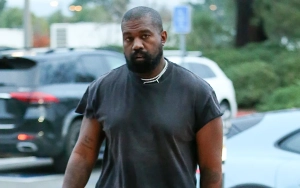
Ann Hornaday of The Washington Post defended her essay after Seth Rogen and Judd Apatow bashed her opinion.
- May 28, 2014
AceShowbiz - The film critic who seemed to suggest that "Neighbors" is the kind of movie that could lead to massacre has an explanation for her essay. The Washington Post's Ann Hornaday said she did not mean to directly link the box office movie and Elliot Rodger's deadly rampage in Santa Barbara.
Hornaday first wrote in her column, "How many students watch outsized frat-boy fantasies like 'Neighbors' and feel, as Rodger did, unjustly shut out of college life that should be full of 'sex and fun and pleasure'?" Director Judd Apatow and the film's star Seth Rogen bashed her for the opinion. The actor tweeted, "@AnnHornaday I find your article horribly insulting and misinformed. How dare you imply that me getting girls in movies caused a lunatic to go on a rampage." Apatow wrote, "She uses tragedy to promote herself with idiotic thoughts."
In her defense, Hornaday said she could understand why Rogen and Apatow "might feel defensive", adding she was inspired to write her column based on the YouTube video that Rodger created before the killing. She said, "In singling out Neighbors and Judd Apatow, I by no means meant to cast blame on those movies or Judd Apatow's work for this heinous action - obviously not."
She continued to address the fact that Rodger is exposed to Hollywood because he's the son of "The Hunger Games" assistant director Peter Rodger. "The whole reason that I weighed in on this issue was that [Rodger] had created this video on YouTube that seemed to be such a product of the entertainment industry that he did grow up in, literally and also just as a member of the culture," Hornaday explained.
"And it seemed that his self-pitying complaints, a lot of them had a lot to do with the sense of entitlement that he had to a life that he had seen reflected around him, and I wanted to sort of tease out how the movies we watch that are primarily created by men and primarily pivot around fantasies of male wish-fulfillment and vigilante justice, how that might inform not just someone suffering under a terrible mental illness but the culture at large in terms of conditioning our own expectations of what we think life is and what we feel like we deserve from it."
In response to Apatow's comment that she sought fame via the tragedy, Hornaday said, "I was not using the grievous episode in Isla Vista to make myself more famous; nor was I casting blame on the movies for Rodger's actions. Rather, in my capacity as a movie critic, I was looking at the video as a lens through which to examine questions about sexism, insecurity and entitlement, how they've threaded their way through an entertainment culture historically dominated by men and how they've shaped our own expectations as individuals and a culture."
The veteran film critic signed off with a thought to consider. "As a film critic, what I wanted to do was think about was what echoes we heard from the larger culture and maybe pose some questions that might be useful," she said. "At least judging from my inbox today, a lot of people do think that those are questions worth asking."





